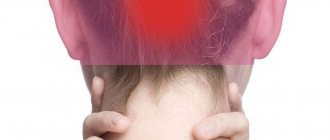What person is not familiar with the feeling of weakness in the body, when there is no strength to simply get out of bed, not to mention more energy-consuming actions? A feeling of general weakness is a subjective factor of well-being when there is a lack of strength for any physical activity and everyday activities, the performance of which in a normal state does not cause any problems. At the same time, fatigue and weakness feel similar to each other - there is a feeling of exhaustion, you want to quickly take a horizontal position and not move. The difference is that the cause of banal fatigue is obvious, for example, physical training, lack of sleep or a very active day. As for general weakness, a person feels a lack of strength for other reasons, which he cannot always determine on his own if they are not obvious.
Why does general weakness occur?
What reasons could be responsible for the resulting weakness? All reasons can be divided into two large groups - known and unknown. So, for example, if a child or adult is sick with the flu or has a high fever, it is natural that he will feel exhausted even without any physical activity, and the reason for his poor health is obvious. It’s another matter when a person feels general weakness for a long time without any significant accompanying symptoms, and does not know that this condition could be a manifestation, for example, of anemia or pathologies of the endocrine system.
Content:
- Why does general weakness occur?
- Clinical classification of malaise
- Symptoms that form and accompany a feeling of general weakness
- Weakness due to infectious diseases
- Signs of oncological processes
- Weakness due to diabetes
- Diseases of the spine that may cause loss of strength
The fact is that fatigue itself and a general state of weakness can be a symptom of a large number of diseases due to many reasons. Among them, for example, there is vitamin deficiency - a lack of vitamins, one or more. Often, causeless weakness is a consequence of a lack of B vitamins in the body, especially vitamin B12, which is responsible for the production of red blood cells and prevents the development of anemia. It is because of its lack that a person can develop anemia (anemia) and provoke a state of weakness and weakness. The deficiency of vitamin D, produced by the body under the influence of ultraviolet radiation, is especially noticeable in winter and autumn. The resulting feeling of chronic fatigue and weakness during these seasons can be triggered by a lack of the “sunshine” vitamin.
Depression is a serious psychiatric disorder, and not a banal bad mood, as quite a large number of people mistakenly think. It manifests itself as a constant feeling of depression, physical and mental inhibition, disturbances and disorders of thinking.
Diseases of the thyroid gland and associated hormonal disorders lead to a feeling of weakness, for example, with hyperthyroidism or hypothyroidism. Reduced organ function (hypothyroidism) provokes weakness in the limbs, when everything literally “falls out of hand,” according to patients. Hyperthyroidism, in addition to the described feeling, is accompanied by nervous excitability, hand tremors, fever, and heart rhythm disturbances.
Celiac disease is a not very common pathology, which consists of the inability to digest gluten. If the subject is unaware of the problem and continues to consume flour products and various flour products, in addition to flatulence and diarrhea with loose stools, he will experience constant fatigue.
Some other reasons for constantly feeling weak:
- taking certain medications (antihistamines, beta blockers, antidepressants);
- vegetative-vascular dystonia;
- diabetes;
- oncological diseases;
- chronic fatigue syndrome;
- dehydration;
- anemia and other blood diseases;
- cardiovascular diseases;
- acute and chronic infectious processes, acute respiratory viral infections and colds;
- state of intoxication.
In addition, a state of malaise can develop during menstruation in women, with injuries to the torso and skull, after general anesthesia and operations.
Remedies to combat the effects of influenza
The arsenal of traditional healers has accumulated many recipes to combat the effects of colds and flu.
In first place is, of course, honey. If there is no allergy to honey and other bee products (royal jelly, bee bread, propolis), it is used as an immunostimulating agent.
To restore sleep and relieve emotional stress, decoctions and infusions based on sedative medicinal herbs are used: chamomile, valerian, motherwort, St. John's wort, sage.
Natural adaptogens will help strengthen the immune system: ginger, echinacea, rhodiola, eleutherococcus, Chinese lemongrass, ginseng root. They improve physical and mental performance, increase cellular energy, increase stamina and improve mood.
Clinical classification of malaise
Depending on the mechanism of development and manifestation of the condition, it is classified into the following types:
- generalized weakness that develops and progresses slowly;
- acute and rapidly progressing condition;
- recurrent and intermittent general weakness.
The nature of the formation and development of illness is a factor that plays an important role in determining the causes of illness. So, for example, the first type of condition may be characteristic of:
- sarcoidosis;
- myopathies;
- connective tissue diseases;
- intoxication;
- oncological processes;
- metabolic disorders;
- endocrinopathies;
- psychogenic weakness;
- general somatic diseases with and without damage to the neuromuscular system.
An acute condition with sharp progression can develop with myopathy, damage to the nervous system due to poliomyelitis, as well as with psychogenic weakness.
The last type of pathological condition occurs in diseases of the central nervous system and neuromuscular lesions (myasthenia gravis, periodic paralysis).
Content:
- The main causes of asthenic syndrome after coronavirus: 1.1. Asthenia: somatic or mental disorder?
- Features of the clinical course of asthenia after Covid.
- Diagnostic principles: 3.1. Indications for emergency medical consultation.
- How to treat asthenic syndrome after covid: 4.1. Nutrition correction. 4.2. Restoring tolerance to physical activity. 4.3. Drug therapy.
According to doctors, residual symptoms after recovery from COVID-19 can persist for quite a long time. But the most unpleasant and exhausting (primarily psychologically) is the feeling of constant fatigue, weakness and loss of strength. How serious are these symptoms? Is there a way to quickly return to your normal lifestyle?
Symptoms that form and accompany a feeling of general weakness
As already mentioned above, a state of malaise is, first of all, a person’s subjective feeling, his complaints about well-being. The manifestation of weakness can have several variants of symptoms, which consist of several pathological conditions.
For example, weakness may be accompanied by:
- absentmindedness;
- headache, pain in joints and muscles;
- disturbances of concentration and memory;
- decreased performance and productivity;
- speech difficulties;
- feeling of overwork;
- deterioration and decrease in mental activity.
In addition, the state of weakness may be accompanied by:
- fever and euphoria;
- swollen lymph nodes;
- pain in the back and lower back;
- eye fatigue, hoarseness of voice;
- sleep disturbances and weight fluctuations;
- decreased appetite;
- heavy sweating;
- dry mouth;
- nausea, dizziness, vomiting;
- temperature rise to low-grade or high levels.
In this case, the person prefers to be stationary, he experiences a sharp or gradual decrease in activity, depressed mood, heart palpitations, pallor of the skin, sensitivity to noise and light.
Weakness due to infectious diseases
Most infectious and viral diseases occur against a background of gradually increasing malaise and general deterioration in well-being, especially while the virus or infection is in the process of reproducing. Weakness in such cases is combined with fever, headache, intestinal disorders and digestive disorders, sleep disturbances, vomiting, dry cough, and nasal congestion. Skin rashes, sore throat, drowsiness, and swollen lymph nodes are possible. The condition is directly related to the intoxication that has occurred in the body. The course of an infectious disease is possible without fever, especially in patients with weak immunity. A person has a headache and a sore throat, he sleeps a lot and practically does not eat. Such symptoms are characteristic of the acute course of infectious diseases. Weakness may not be accompanied by other pathological manifestations - in this case we can speak of an asymptomatic course.
It is interesting that during the day the patient’s condition is not the same: if in the morning after waking up he feels relatively cheerful, then after lunch and in the evening the temperature rises and all the symptoms of malaise intensify.
How to avoid getting infected again
A person who has had the flu develops specific immunity, but only to the strain (type) of the virus that caused the disease. At the same time, several types of influenza virus circulate during the epidemic season, not counting the many viruses of other respiratory infections. A meeting with one of them against the backdrop of a weakening of the body’s defenses can lead to a relapse of the disease. Therefore, during the period of convalescence, the patient is recommended to adhere to the principles of prevention against viral infections:
- Refrain from visiting crowded public places.
- Avoid contact with sick people.
- Observe personal hygiene rules.
Signs of oncological processes
Constant weakness in cancer patients may be part of the general symptoms of the underlying disease. Weakness is caused by intoxication of the body, because a growing tumor releases toxic products of its vital activity into the surrounding tissues and vessels. Moreover, the malaise manifests itself in other signs. The early stages of tumor development are usually asymptomatic, and as the process progresses, painful sensations may develop due to the pressure of the tumor on surrounding tissues, nerve endings, and vital centers, depending on the location of the tumor. In addition, the sick person loses his appetite, and his weight begins to decrease. The worst thing is when the appetite is normal and the person eats normally, but the weight is still melting before our eyes - this means that metabolic processes are disrupted. One of the early signs of cancer may be an unreasonable increase in body temperature. In fact, the reason is that the tumor suppresses the immune system, which responds in this way. The patient may feel increased sweating and often breaks into a cold sweat.
Treatment methods
The treatment regimen is selected individually. Most patients are prescribed a course of medications to take at home. It is recommended to undergo repeated examinations periodically to monitor the dynamics of the disease. The course may include the following stages:
- drugs to increase or decrease blood pressure;
- a special diet for atherosclerosis, heart and vascular diseases, which excludes fatty foods, fried foods, salt and spices in large quantities;
- migraine pain relievers;
- antibiotics – prescribed for inflammation of the inner ear, for the treatment and prevention of purulent complications;
- A course of vitamins and microelements is selected based on the results of a blood test.
The Clinical Brain Institute offers an individual approach to each patient. Here you can undergo comprehensive diagnostics, receive recommendations from specialists with many years of experience, and also stay for treatment in a hospital setting.
Weakness due to diabetes
The main reasons why weakness can develop in a patient diagnosed with diabetes mellitus:
- overdose of insulin-containing drugs for type 1 diabetes;
- developing pathologies of the gastrointestinal tract, nervous system, kidney damage;
- diseases of the cardiovascular system;
- inadequate dosage of glucose-lowering drugs for type 2 diabetes;
- formation of one type of coma (hyperosmolar, ketoacidotic, hypoglycemic, lactic acidemic);
- consumption of alcoholic beverages;
- intense physical activity.
It is known that in the body of a patient with diabetes, some processes are disrupted. Due to improper functioning of the pancreas, insufficient insulin production occurs. Its lack and the development of resistance of cellular receptors to it leads to the fact that glucose does not enter the body tissues in the required concentration. Glucose, in turn, is a source of energy to maintain life. In addition, an increase in the concentration of glucose in the blood leads to its thickening, and the internal organs no longer receive the required amount of nutrients, because the blood flow to them is poorer. The result of such a violation is a feeling of weakness that haunts a diabetic.
Diagnostic methods
At the Clinical Institute of the Brain you can undergo a full diagnosis, which will include examinations of any level. The first stage is a consultation with a therapist to identify complaints and prescribe further procedures. Next, an individual diagnostic scheme is selected, which may include the following methods:
- blood tests (general and biochemical) to determine inflammatory processes in the body, disruption of the functioning of individual organs and systems, measurement of hemoglobin levels;
- Ultrasound of internal organs, including the heart;
- electrocardiography – diagnosis of heart rhythm, one of the main ways to determine heart defects;
- MRI, CT scan of the brain - is prescribed for suspected neoplasms, the presence of areas of ischemia and other pathologies.
It is important to understand that competent and timely diagnosis is the key to successful treatment. The use of modern equipment, which is located at the Clinical Institute of the Brain, greatly simplifies the task and allows you to quickly make the correct diagnosis.










